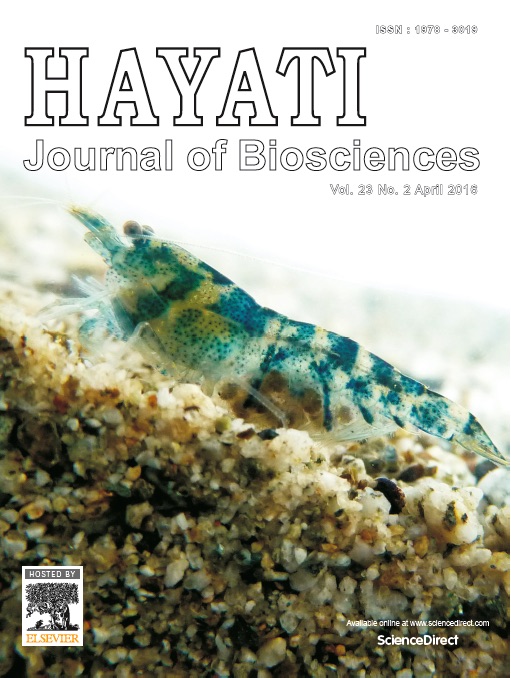Antibacterial Activity of Extracellular Protease Isolated From an Algicolous Fungus Xylaria psidii KT30 Against Gram-Positive Bacteria
Abstract
Infectious diseases became more serious problem for public health in recent years. Although existing antibacterial drugs have been relatively effective, they do not rule out the emergence of resistance to the drug. Therefore, the intensive exploration of new bioactive compounds from natural, especially peptide compounds began in recent decades in order-handling infection. This study aimed to isolate, purify and test the potential application of Xylaria psidii KT30 extracellular protease as antibacterial agent against Gram-positive bacteria. X. psidii KT30, a marine fungus isolated from red seaweed Kappaphycus alvarezii showed antibacterial activity against Bacillus subtilisand Staphylococcus aureus. Antibacterial compounds of this fungus were predicted as a group of proteases. Extracellular protease exhibited an optimum activity when potato dextrose broth was used as cultivation medium. Furthermore, the highest activity of these proteases was found on fungal extract after day 15 of cultivation with value of 2.33 ± 0.19 U/mL. The partial purification of proteases using G-75 column chromatography resulted in 2 groups of fractions and showed protease activity based on zymogram assay. The extracellular proteases obtained from those fractions have 3 patterns of molecular mass based on sodium dodecyl sulfate–polyacrylamide gel electrophoresis which are 56.62, 89.12, 162.18 kDa.Downloads
HAYATI J Biosci is an open access journal and the article's license is CC-BY-NC. This license lets others distribute, remix, tweak, and build upon author's work, as long as they credit the original creation. Authors retain copyright and grant the journal/publisher non exclusive publishing rights with the work simultaneously licensed under a https://creativecommons.org/
























.png) IPB University
IPB University Department of Biology
Department of Biology The Indonesian Biological Society
The Indonesian Biological Society 

